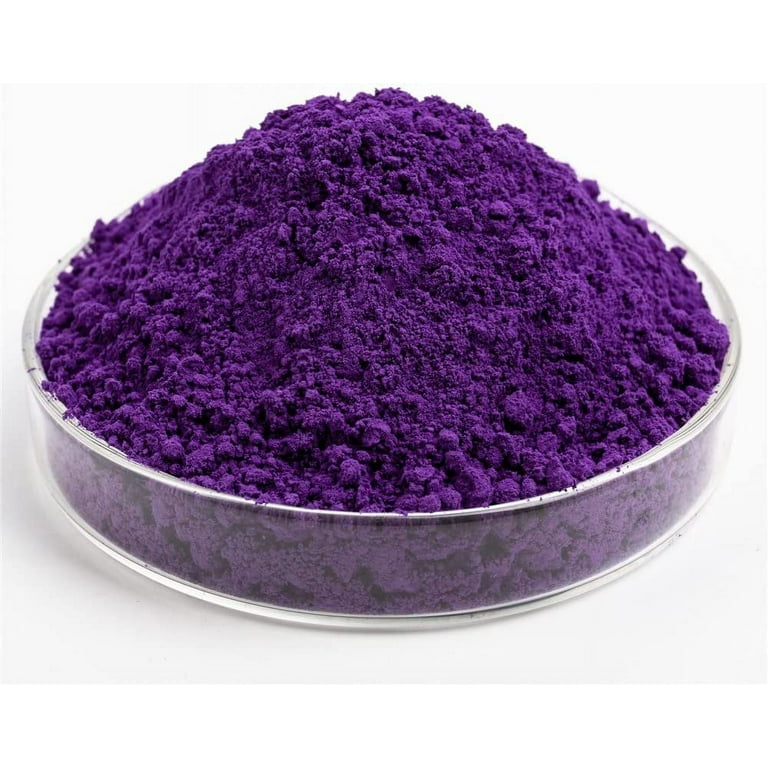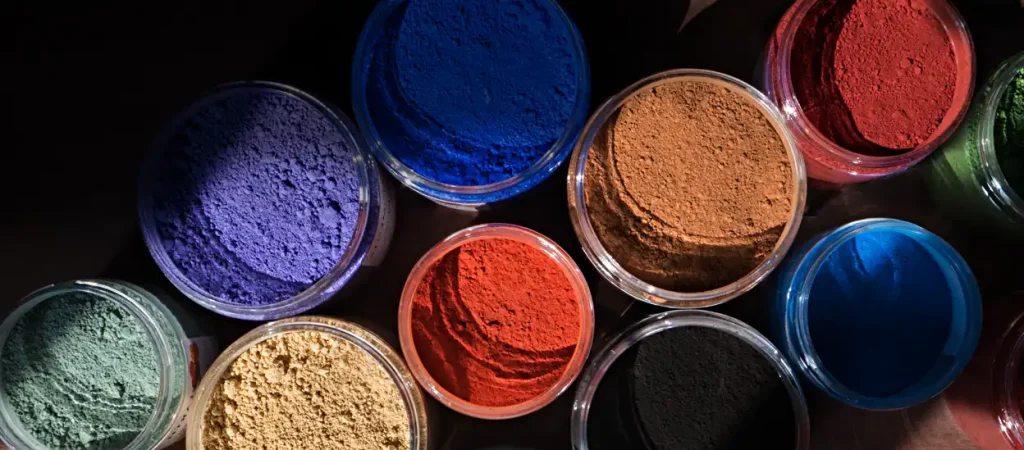Pigment powders can be toxic, depending on their chemical composition. Always handle them with care and follow safety guidelines.
Pigment powders are widely used in various industries, including art, cosmetics, and manufacturing. These powders can create vibrant colors and effects, but they also pose potential health risks. Some pigment powders contain heavy metals or other harmful chemicals. Inhaling or ingesting these substances can lead to serious health issues.
Using protective gear like masks and gloves is essential to minimize exposure. Proper storage and handling can further reduce risks. Understanding the composition of the pigment powder you are using is crucial for safe application. Always read labels and safety data sheets to ensure you are using non-toxic, safe materials.

Introduction To Pigment Powders
Pigment powders are fine particles of color. They are used to add color to materials. These powders can be natural or synthetic. Natural pigments come from plants, minerals, and animals. Synthetic pigments are made from chemicals. Both types are used in many products. They provide vivid and lasting colors.
Pigment powders are popular in art and industry. Artists use them in paints, inks, and dyes. They help create bright and beautiful artworks. In industry, they are used in plastics, textiles, and cosmetics. They give products a specific color and appearance. Pigment powders are also used in printing and construction. They help make colorful prints and materials.
The Composition Of Pigment Powders
Pigment powder composition varies, often containing heavy metals and chemicals. Some types can be toxic, posing health risks. Always check labels and use proper safety measures when handling.
Natural Vs Synthetic Pigments
Natural pigments come from plants, minerals, and animals. These pigments are usually safe and non-toxic. Synthetic pigments are made in labs. They can contain harmful chemicals. It’s important to check labels for safety.
Key Ingredients And Their Roles
Iron oxides give red, yellow, and brown colors. Titanium dioxide adds white. Mica adds sparkle and shine. Chromium oxide gives green hues. All these ingredients create vibrant colors. Some may have health risks if inhaled.
Potential Health Risks Of Pigment Powders
Breathing in pigment powder dust can be harmful. Dust particles can enter the lungs. This may cause breathing problems or lung irritation. Some pigment powders contain toxic chemicals. These can be even more dangerous when inhaled.
Touching pigment powders can irritate the skin. Some powders may cause allergic reactions. Skin can become red, itchy, or swollen. It is important to wash skin after contact.
Long-term exposure to pigment powders can lead to serious health issues. Chronic exposure may result in respiratory problems. Some powders can cause skin disorders over time. It is essential to wear protective gear when handling pigments.

Exploring Toxicity In Pigment Powders
Some pigment powders have toxic components. These harmful substances include lead, cadmium, and mercury. Lead can cause serious health problems. Cadmium is a known carcinogen. Mercury can damage the nervous system. Always check labels for these harmful ingredients.
| Pigment | Toxicity Level |
|---|---|
| Lead White | High |
| Cadmium Red | High |
| Ultramarine Blue | Low |
| Iron Oxide | Low |
Safety Measures And Best Practices
Always wear gloves when handling pigment powder. Use goggles to protect your eyes from dust. Masks can help you avoid inhaling harmful particles. A lab coat can protect your clothes and skin.
Keep your workspace well-ventilated. Use fans or air purifiers to keep the air clean. Open windows to allow fresh air to circulate. This helps to remove any harmful particles in the air.
Dispose of pigment waste in sealed bags. Do not throw it in regular trash bins. Follow local regulations for hazardous waste disposal. Ensure all containers are properly labeled.
Regulations And Standards
Regulations and standards ensure pigment powder safety, but some types may still pose health risks. Proper handling and usage are crucial for minimizing exposure to toxic pigments.
Industry Standards For Safety
Industry standards ensure pigment powder is safe for use. These standards help prevent harm. Companies follow these rules strictly. Safety guidelines include proper labeling. Labels warn users of potential hazards. Proper storage is also a key rule. Safe handling instructions are provided too. These steps protect workers and consumers.
Government Regulations On Usage
The government sets strict regulations for pigment powder. These rules control its usage. Only approved powders are allowed. Regulations also limit harmful substances. Companies must test their products. Testing ensures safety for users. Violating these rules leads to penalties. Regular inspections are conducted. These actions keep everyone safe.
Case Studies: Incidents And Outcomes
Workers in factories often deal with pigment powder. Some of them experience skin rashes. Others have breathing issues. Doctors find these problems linked to prolonged exposure. Wearing protective gear helps reduce risks. Regular health check-ups are important. Employers must ensure proper ventilation. Training on safe handling is crucial. Awareness can prevent serious health problems.
Artists often use pigment powders in their work. Some report eye irritation. Others notice allergic reactions. Using masks and gloves can help. Working in well-ventilated areas is important. Many artists prefer natural pigments. These are often less harmful. Some schools offer safety workshops. Sharing safety tips helps protect everyone.

Moving Forward: Safer Alternatives And Innovations
Exploring the potential toxicity of pigment powder is crucial for safer alternatives and innovations. Discover advancements in non-toxic pigment options for a healthier future.
Developments In Non-toxic Pigments
Scientists are creating new pigments that are safe. These pigments do not harm our health. They also do not harm the environment. Some pigments are made from natural materials. Others are made in labs with safe chemicals. These new pigments work well in art and industry. They come in many bright colors. This is good news for artists and workers. They can use these pigments without worry.
Future Of Pigment Powder Safety
The future looks bright for safe pigments. More research is being done every day. New laws help keep harmful pigments off the market. Companies are making safer products. They want to protect their workers and customers. As more people learn about safe pigments, demand will grow. This will push for even more innovation. Soon, harmful pigments may be a thing of the past.
Frequently Asked Questions
Is Pigment Powder Harmful To Humans?
Pigment powder can be harmful if inhaled or ingested. Always use protective gear when handling it to avoid health risks.
Can Pigment Powder Cause Skin Irritation?
Yes, some pigment powders may cause skin irritation. Always test a small area first and use gloves for protection.
Are Natural Pigment Powders Safer?
Natural pigment powders are generally safer than synthetic ones. However, always check for any potential allergens or irritants.
Conclusion
Understanding pigment powder toxicity is crucial for safety. Always check labels and use proper protective gear. Choose non-toxic options when possible. Prioritize ventilation in your workspace. Stay informed and take necessary precautions. Your health should always come first. By doing so, you can enjoy your creative projects safely and responsibly.

